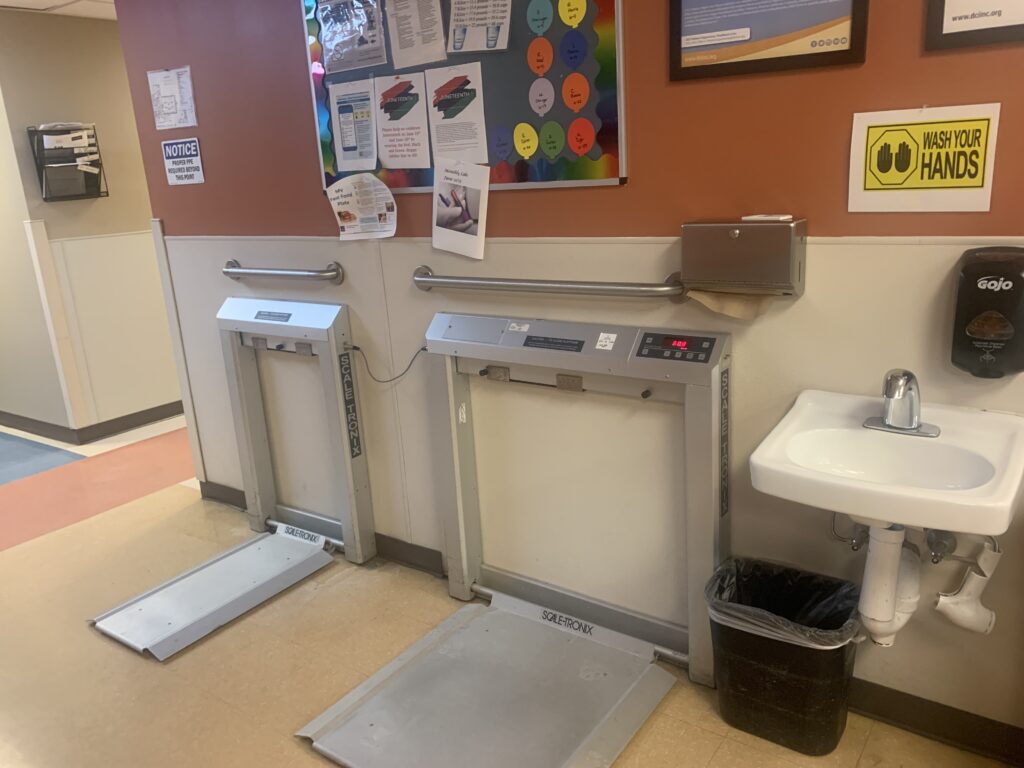Access Care Tips
For individuals undergoing hemodialysis, the process of being stuck with needles multiple times (6-8 times) per week is necessary. But often we fail to mention the impact of repeated needle sticks can have on the patient’s arm or leg.
Repeated needle sticks into your fistulas or grafts can lead to trauma to the blood vessels and surrounding tissue, causing inflammation and scarring causing the arms and legs to look unsightly.
Dialysis patients, particularly African Americans, are at an increased risk of developing keloids due to increased melanin production.
There is hope, by using the right products and techniques, you can minimize the risk of trauma and scarring. From gentle cleansers to specialized scar gels, these interventions can make a significant difference in the appearance and comfort of dialysis patients’ arms and legs.
Recommended Items
Silicone Scar Gel
Silicone Scar Gel for Face, Body, Surgical, Burn, Hypertrophic, Keloids and Acne Scar Treatment
Green Rubbing Alcohol
First Aid Antiseptic Isopropyl Alcohol. To Decrease Germs in Minor Cuts and Scrapes
Arnicare Gel for Bruises
Relief of Joint Pain, Muscle Pain, Muscle Soreness, and Swelling from Bruises or Injury
Instant Cold Packs
Instant Cold Pack, Disposable
Reusable Ice Pack
Reusable 2 Hours Long Lasting Flexible Cold Ice Pack Wrap for Swelling, Bruises
Wrapped Alcohol Wipes
Alcohol Prep Pads| 200 pack| Medical-Grade, Sterile
Hibiclens Antimicrobial Soap
Antiseptic Skin Cleanser
As always, consult with your doctor before starting any new medical regimen, and follow the directions on the product packaging.
Recommended Products
1. Arnicare Cream
Arnica cream is well-known for its anti-inflammatory properties and its ability to reduce bruising and swelling. When applied to the affected area, it can help alleviate discomfort and promote healing.
2. ScarAway 100% Medical-Grade Silicone Scar Gel
ScarAway’s medical-grade silicone scar gel is designed to minimize the appearance of scars, including hypertrophic scars and keloids. It forms a protective barrier over the skin, hydrating and smoothing the scar tissue to promote a more aesthetic healing process.
3. Green Rubbing Alcoho
Green rubbing alcohol, also known as isopropyl alcohol, is a commonly used antiseptic for cleaning wounds and disinfecting surfaces. It helps to kill bacteria and prevent infection when applied to the skin before any medical procedure or dressing changes.
4. Alcohol Wipes
Alcohol wipes are convenient and effective for cleaning the skin around the access site or for disinfecting medical equipment. They are individually packaged for single-use, ensuring sterility, and preventing cross-contamination.
Tips for Caring for Your Access
- Keep the Area Clean by washing hands before touching
- Follow Medical Instructions
- Do not allow anyone to put a blood pressure cuff or draw blood near your access
- Avoid lifting heavy items over 5 pounds with your access area
- Monitor for Signs of Infection
- Apply Products as Directed
- Be Gentle with the Area
- Monitor bleeding after treatment
Proper Access Care:
- Keep It Clean: Wash your hands before touching the area.
- Follow Medical Instructions: Adhere to your doctor’s guidelines.
- Protect Your Access: Avoid having a blood pressure cuff or blood draws near your access.
- Limit Heavy Lifting: Don’t lift anything over 5 pounds with the access area.
- Watch for Infection: Monitor for any signs of infection.
- Use Products as Directed: Apply any recommended products carefully.
- Be Gentle: Handle the area with care.
- Check for Bleeding: Monitor for bleeding after treatment.
Just for enrolling, you will receive a downloadable checklist of foods allowed and not allowed while on dialysis or suffering from kidney disease, as well as a series of renal specific meal plans.
